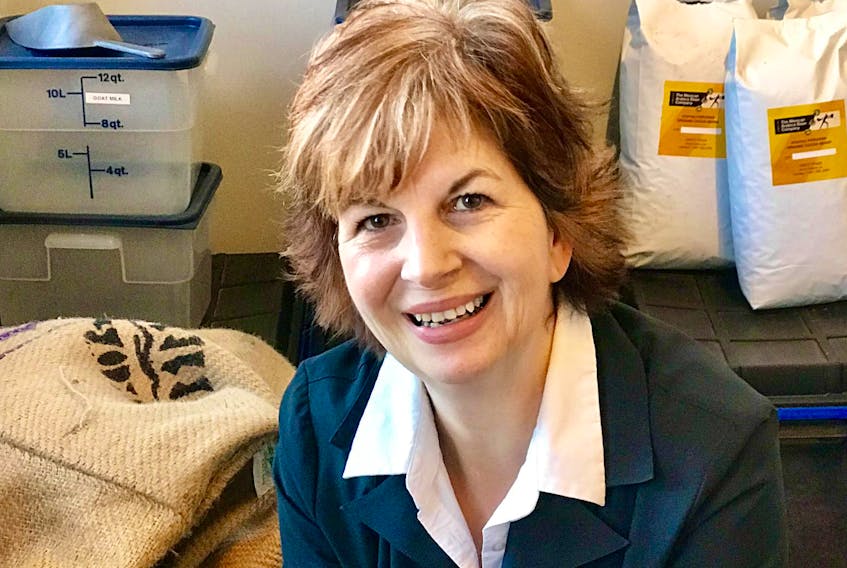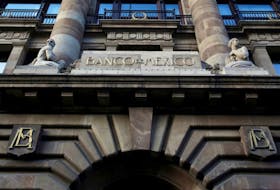Life is sweet now for Nova Scotia’s only bean-to-bar chocolate maker and Canadian Forces veteran Gabrielle Breault and her husband, Peter Austin-Smith.
“The chocolate has given me a new life after being medically released from the military,” Breault told the Valley Harvester.
The couple owns and operates Petite Patrie Fine Chocolate from their renovated farmhouse in Medford, Kings County. Breault found herself here after asking her son where they should live after postings across the country.
“He chose here and I was quite happy about that. I always felt home here and I used to come to this area to relax.” Breault knew her ancestors were Acadian and then discovered they had lived in nearby Canard. “So, it’s my homeland, my patrie,” she said.
Breault makes small-batch chocolate from shipments of cacao beans from organic, fair-trade co-op farms in Peru, Honduras, Mexico and Karkar Island in Papua New Guinea. Both Breault and Austin-Smith are also certified chocolate tasters, identifying the distinct flavours of fine chocolate that come from its variety, terroir and processing, ranging from fruity to nutty. Chocolate from the Tabasco region in Mexico, for example, doesn’t have tabasco sauce added to it, said Breault. “But you can taste the spiciness,” she said.
Breault has been perfecting her art of making chocolate since 2016, training at the Chocolate Academy in Montreal, at the Squires Kitchen International School in Farnham, England, and at Ecole Chocolat in Costa Rica.
“I’m a chocolate maker. Chocolatiers have a different set of skills, taking chocolate that’s already been made, making confectionary such as ganache, fillings, truffles. I find that super annoying to do,” she said. “But making chocolate is also a long process.”
From the farm, the beans go to a cacao processing plant and then they get fermented, sun dried and put into bags for the ships that find their way to Canada through her supplier, Juan Gonzales, a Canadian-Mexican.
“He has the same values as I do. He grew up on a cacao farm, so he’s against child slavery, which there is a lot of in chocolate, and the crops support local schools,” said Breault. “There’s a social aspect to it and that’s really why I went into this business. Otherwise, I wouldn’t feel good about it. My chocolate sells for more, but there’s a price to make sure the farmers earn a living and no one has to send any kids to the farm instead of school.”
One per cent of sales also get donated to the Mersey Tobeatic Research Institute in Queens County, which promotes sustainable use of natural resources and biodiversity conservation. Breault knows the stories of each farm she sources her beans from.
“There is only about 10 per cent of chocolate grown in the world that is fine,” said Breault. “These beans are a pain to grow. They require a lot of time for the farmers.”
It takes about two months for a shipment of a 55-kilogram bag of beans to arrive. Roasting one kilogram of beans takes an hour in her coffee roaster. She puts them through a juicer to crack them and then they’re passed through a winnower before stone-grinding the nibs for about 20 hours.
“Although within 10 minutes the nibs turn into liquid called chocolate liqueur, but there is no alcohol in it,” said Breault.
The result is a decadent, smooth, unsweetened chocolate that she makes eight kinds of handcrafted chocolate bars from that are 70 to 80 per cent chocolate, incorporating local ingredients where she can. Some chocolate needs to age. It takes about a week to make the bars from start to finish
Lucie Kuhlmann wine from Planters Ridge winery in Port Williams infuses one blend, while maple syrup from Hutchinson Acres in Lake Paul goes into a white chocolate bar with almonds. One is dairy and sugar free made with coconut milk. She’s also started working with moulds and made some small eggs for Easter weekend and is aiming to create a special bar she’s hoping will be available for the Annapolis Valley Apple Blossom Festival at the end of May.
Petite Patrie Fine Chocolate bars are sold at select wineries, the Wolfville Farmers’ Market and debuted at the Truro Farmers’ Market recently. They’re also available online at petitepatriechocolate.com.









